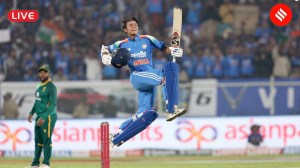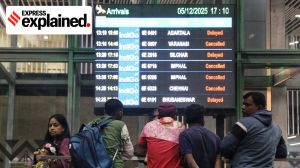Rahul, the Leader of the Opposition (LoP) in the Lok Sabha, has been travelling across the country with a copy of the Constitution in hand, stressing on the need for “participation and control and not merely representation” of the oppressed communities in the country’s institutions and resources.

The AICC reshuffle saw fresh appointments of general secretaries for two states and in-charges for nine states, which also involved the exit of six functionaries who held these positions earlier.
At its meeting on December 26 last year, the Congress Working Committee (CWC), the party’s highest decision-making body, had given the green signal for reforms in the party. The proposed organisational revamp would ensure “equitable participation” of the oppressed and backward sections in the Congress’s leadership positions, party insiders said.
Of the 11 new functionaries, who were handed responsibilities of different states, five belong to the OBC groups, one is a Dalit, one Muslim, one tribal, and three are from the upper caste communities.
While ex-Chhattisgarh chief minister Bhupesh Baghel, named as the general secretary in charge of Punjab, is an OBC leader, a Muslim face and Rajya Sabha MP Syed Naseer Hussain has been appointed as the general secretary in charge of Jammu and Kashmir and Ladakh.
Among the nine AICC in-charges of states are Saptagiri Sankar Ulaka (in-charge of Manipur, Tripura, Sikkim and Nagaland), who is a tribal leader from Odisha, while Ajay Kumar Lallu – an OBC leader and former Uttar Pradesh Congress president – has been given the charge of Odisha.
Story continues below this ad
Veteran Congress leader B K Hariprasad, Haryana in-charge, Harish Chaudhary, Madhya Pradesh in-charge, and Girish Chodankar, the in-charge of Tamil Nadu and Puducherry, also belong to the OBC communities.
Chodankar belongs to the OBC Bhandari group from Goa, while Harish is an OBC leader from Rajasthan’s Barmer.
Meenakshi Natarajan, the in-charge of Telangana, is a Brahmin who hails from Ujjain in Madhya Pradesh. She was elected to the Lok Sabha from the Mandsaur seat in 2009.
While former bureaucrat K Raju (Jharkhand in-charge) is a Dalit leader, Krishna Allavaru (Bihar in-charge) is an upper caste face.
Story continues below this ad
Rajya Sabha member Rajani Ashokrao Patil, who represents Maharashtra in the Upper House, belongs to the Maratha community, who has been close to former Congress president Sonia Gandhi.
The AICC’s six outgoing functionaries include three each from the upper castes and the OBCs.
Raju, Allavaru, and Natarajan have been part of Rahul’s core team. Allavaru has been given the crucial job of handling the party affairs in Bihar where elections are due in October this year.
Over the last few days, Kharge has also appointed former Union minister Bhakta Charan Das (Dalit) as the Pradesh Congress Committee (PCC) president in Odisha and ex-party MLA Harshvardhan Sapkal (OBC) as the Maharashtra unit chief.
Story continues below this ad
Speaking at an event last month, Rahul conceded that the Congress did not do enough for the SCs and OBCs in the last 10-15 years. He said he had no hesitation in admitting that the grand old party has not been able to maintain the “confidence” the deprived sections reposed in it under his grandmother and former Prime Minister Indira Gandhi.
At the same gathering where Rahul addressed Dalit influencers and intellectuals, he said the party will “have to bring in an internal revolution”. “The latest appointments in the Congress are in sync with Rahul’s roadmap for the party,” said an AICC leader.
Last August, in the first AICC reshuffle after the Lok Sabha elections, the Congress had given 60 per cent representation to the SC, ST, OBC and minority communities. In that exercise, 75 new secretaries and joint secretaries were appointed. During a meeting with the new appointees then, Rahul had said the party “needs to undergo a revamp to reflect its ideology”.
A senior Congress leader said: “The appointments within the party have to reflect its ideology. If the LoP is talking about representation and participation of the oppressed groups, we have to first ensure that within the party, and that is being done in the organisational reshuffle. If the party has to change its image of being an upper caste party, it has to reflect in its appointments and functioning too.”
Story continues below this ad
Rahul’s speeches in Parliament in recent months have focused on the need for a caste census – described by him “as an X-ray for the society” – and empowerment of the backward and vulnerable groups.
However, some senior Congress leaders have expressed concerns over several state leaders not echoing Rahul’s pitch on caste. “There are several leaders in states who don’t take the same line as Rahul ji does on caste. We need to have leaders in states that can help the party get its message to the last person. And the appointments reflective of the society’s caste composition are a step in that direction,” an AICC leader said.
































